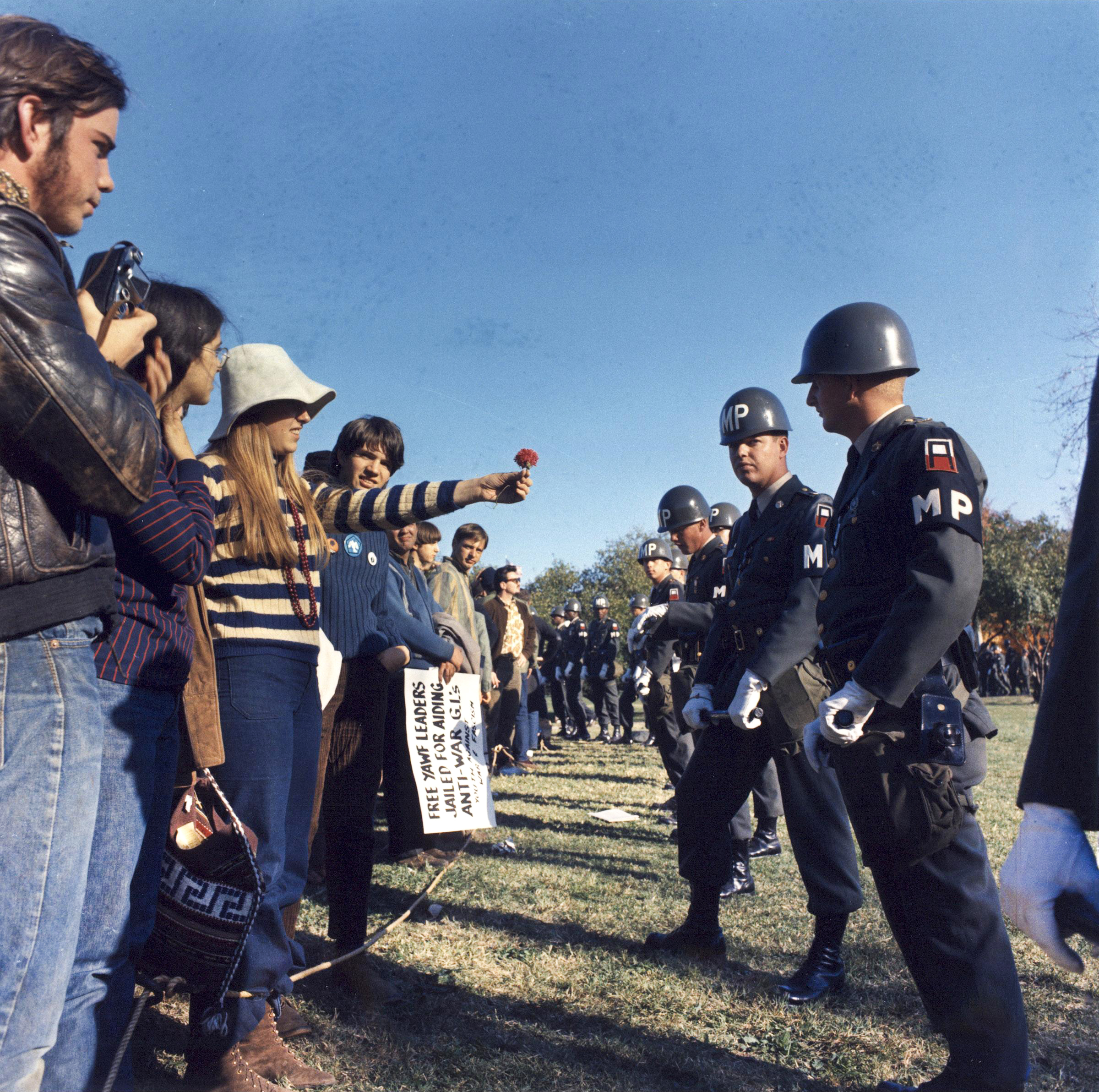|
Sarolta Zalatnay
Sarolta Zalatnay (born Charlotte Sacher in Budapest, Hungary, 14 December 1947) is a Hungarian singer. She has been noted for a flourishing popular music career under Communism, and evolved from teen pop to rock music. Career Zalatnay was born with the name Charlotte Sacher; her family later adopted Hungarian naming conventions and her official name became Zalatnay Sarolta. She appeared on stage for the first time in 1963, using the nickname Cini. In 1966, at age 18, she finished in second place in the Hungarian Television song contest Táncdalfesztivál, with the song "Hol jár az eszem?" ("Where is My Mind Running?"). During this period she worked with the backing bands Bergendy Együttes and Metró. In 1967 she appeared in the contest again and finished in first place with the song "Nem várok holnapig" ("I Am Not Waiting Till Tomorrow"), on which she was accompanied by the Hungarian rock group Omega. Thanks to the relatively lenient travel restrictions managed by the Co ... [...More Info...] [...Related Items...] OR: [Wikipedia] [Google] [Baidu] |
Budapest
Budapest (, ; ) is the capital and most populous city of Hungary. It is the ninth-largest city in the European Union by population within city limits and the second-largest city on the Danube river; the city has an estimated population of 1,752,286 over a land area of about . Budapest, which is both a city and county, forms the centre of the Budapest metropolitan area, which has an area of and a population of 3,303,786; it is a primate city, constituting 33% of the population of Hungary. The history of Budapest began when an early Celtic settlement transformed into the Roman town of Aquincum, the capital of Lower Pannonia. The Hungarians arrived in the territory in the late 9th century, but the area was pillaged by the Mongols in 1241–42. Re-established Buda became one of the centres of Renaissance humanist culture by the 15th century. The Battle of Mohács, in 1526, was followed by nearly 150 years of Ottoman rule. After the reconquest of Buda in 1686, the ... [...More Info...] [...Related Items...] OR: [Wikipedia] [Google] [Baidu] |
Károly Frenreisz
Károly Frenreisz (born 8 November 1946, Budapest, Hungary) is a Hungarian rock singer and songwriter. Life Frenreisz first studied piano and then learned to play the clarinet, saxophone, and bass. He was from 1965 to 1971 part of the band Metró. The most famous song he wrote while in the band was ''Citromízű banán''. He played a significant role in getting Metró through the end of the sixties and being part of the era of modern experimental trends in music. In 1971, he was a founding member of the band Locomotiv GT, where he was the bassist, brass player, and lead singer. He wrote the band's first hits (Boldog vagyok, Érints meg), and was connected to the band's first international success. In January 1973 he left Locomotiv GT, and later he founded the band Skorpió. The band carried over Locomotiv GT's progressive sound for their first album "A rohanás" (1974), but soon after they switched to a more radio-friendly hard rock sound. They had many hit songs, such as "Így ... [...More Info...] [...Related Items...] OR: [Wikipedia] [Google] [Baidu] |
Living People
Related categories * :Year of birth missing (living people) / :Year of birth unknown * :Date of birth missing (living people) / :Date of birth unknown * :Place of birth missing (living people) / :Place of birth unknown * :Year of death missing / :Year of death unknown * :Date of death missing / :Date of death unknown * :Place of death missing / :Place of death unknown * :Missing middle or first names See also * :Dead people * :Template:L, which generates this category or death years, and birth year and sort keys. : {{DEFAULTSORT:Living people 21st-century people People by status ... [...More Info...] [...Related Items...] OR: [Wikipedia] [Google] [Baidu] |
Playboy
''Playboy'' is an American men's lifestyle and entertainment magazine, formerly in print and currently online. It was founded in Chicago in 1953, by Hugh Hefner and his associates, and funded in part by a $1,000 loan from Hefner's mother. Known for its centerfolds of nude and semi-nude models (Playmates), ''Playboy'' played an important role in the sexual revolution and remains one of the world's best-known brands, having grown into Playboy Enterprises, Inc. (PEI), with a presence in nearly every medium. In addition to the flagship magazine in the United States, special nation-specific versions of ''Playboy'' are published worldwide, including those by licensees, such as Dirk Steenekamp's DHS Media Group. The magazine has a long history of publishing short stories by novelists such as Arthur C. Clarke, Ian Fleming, Vladimir Nabokov, Saul Bellow, Chuck Palahniuk, P. G. Wodehouse, Roald Dahl, Haruki Murakami, and Margaret Atwood. With a regular display of full-page c ... [...More Info...] [...Related Items...] OR: [Wikipedia] [Google] [Baidu] |
Zalatnay Sarolta énekesnő
Sarolta Zalatnay (born Charlotte Sacher in Budapest, Hungary, 14 December 1947) is a Hungarian singer. She has been noted for a flourishing popular music career under Communism, and evolved from teen pop to rock music. Career Zalatnay was born with the name Charlotte Sacher; her family later adopted Hungarian naming conventions and her official name became Zalatnay Sarolta. She appeared on stage for the first time in 1963, using the nickname Cini. In 1966, at age 18, she finished in second place in the Hungarian Television song contest Táncdalfesztivál, with the song "Hol jár az eszem?" ("Where is My Mind Running?"). During this period she worked with the backing bands Bergendy Együttes and Metró. In 1967 she appeared in the contest again and finished in first place with the song "Nem várok holnapig" ("I Am Not Waiting Till Tomorrow"), on which she was accompanied by the Hungarian rock group Omega. Thanks to the relatively lenient travel restrictions managed by the Co ... [...More Info...] [...Related Items...] OR: [Wikipedia] [Google] [Baidu] |
Erkel Theatre
The Erkel Theatre is a theatre in Budapest, Hungary. Being the largest public building in the city for decades (and the largest theatre in the city), it was made part of the Hungarian State Opera House in 1951. History With the idea of bringing opera to the masses for cheap, originally named Népopera (The People's Opera), the theatre was planned and built by the Népopera JSC (funded largely by the Budapest city council). The council provided the plot for free, but in return it regulated the theatre's operation: among other requirements, it had to employ a permanent Hungarian company, and the language of the plays had to be Hungarian. Designed by Dezső Jakab, Marcell Komor and Géza Márkus, the theatre was completed in 9 months. Equipped with modern machinery, including an organ, it had a 14 wide and 8.5 meter tall stage. The auditorium was similarly large, with a size of 40x10 meters. Intended for the working masses, the theatre was simplistic in style, except for a lar ... [...More Info...] [...Related Items...] OR: [Wikipedia] [Google] [Baidu] |
Tabloid Journalism
Tabloid journalism is a popular style of largely sensationalist journalism (usually dramatized and sometimes unverifiable or even blatantly false), which takes its name from the tabloid newspaper format: a small-sized newspaper also known as half broadsheet. The size became associated with sensationalism, and ''tabloid journalism'' replaced the earlier label of ''yellow journalism'' and ''scandal sheets''. Not all newspapers associated with tabloid journalism are tabloid size, and not all tabloid-size newspapers engage in tabloid journalism; in particular, since around the year 2000 many broadsheet newspapers converted to the more compact tabloid format. In some cases, celebrities have successfully sued for libel, demonstrating that tabloid stories have defamed them. Publications engaging in tabloid journalism are known as rag newspapers or simply rags. Tabloid journalism has changed over the last decade to more online platforms that seek to target and engage youth consu ... [...More Info...] [...Related Items...] OR: [Wikipedia] [Google] [Baidu] |
Blues
Blues is a music genre and musical form which originated in the Deep South of the United States around the 1860s. Blues incorporated spirituals, work songs, field hollers, shouts, chants, and rhymed simple narrative ballads from the African-American culture. The blues form is ubiquitous in jazz, rhythm and blues, and rock and roll, and is characterized by the call-and-response pattern (the blues scale and specific chord progressions) of which the twelve-bar blues is the most common. Blue notes (or "worried notes"), usually thirds, fifths or sevenths flattened in pitch, are also an essential part of the sound. Blues shuffles or walking bass reinforce the trance-like rhythm and form a repetitive effect known as the groove. Blues as a genre is also characterized by its lyrics, bass lines, and instrumentation. Early traditional blues verses consisted of a single line repeated four times. It was only in the first decades of the 20th century that the most common current str ... [...More Info...] [...Related Items...] OR: [Wikipedia] [Google] [Baidu] |
Acid Rock
Acid rock is a loosely defined type of rock music that evolved out of the mid-1960s garage punk movement and helped launch the psychedelic subculture. Named after lysergic acid diethylamide (LSD), the style is generally defined by heavy, distorted guitars, lyrics with drug references, and long improvised jams. Much of the style overlaps with 1960s garage punk, proto-metal, and early heavy, blues-based hard rock. The term is sometimes used interchangeably with "psychedelic rock", but it also specifically refers to a more musically intense subgenre or sibling of the psychedelic rock style. Compared to other psychedelic rock, acid rock features a harder, louder, heavier, or rawer sound. It developed mainly from the American West Coast, where groups did not focus on the novelty recording effects or whimsy of British psychedelia, and instead emphasized the heavier qualities associated with both the positive and negative extremes of the psychedelic experience. As the movement p ... [...More Info...] [...Related Items...] OR: [Wikipedia] [Google] [Baidu] |
Madonna
Madonna Louise Ciccone (; ; born August 16, 1958) is an American singer-songwriter and actress. Widely dubbed the " Queen of Pop", Madonna has been noted for her continual reinvention and versatility in music production, songwriting, and visual presentation. She has pushed the boundaries of artistic expression in mainstream music, while continuing to maintain control over every aspect of her career. Her works, which incorporate social, political, sexual, and religious themes, have generated both controversy and critical acclaim. A prominent cultural figure crossing both the 20th and 21st centuries, Madonna remains one of the most "well-documented figures of the modern age", with a broad amount of scholarly reviews and literature works on her, as well as an academic mini subdiscipline devoted to her named Madonna studies. At 20 years old, Madonna moved to New York City in 1978 to pursue a career in modern dance. After performing as a drummer, guitarist, and vocalist in ... [...More Info...] [...Related Items...] OR: [Wikipedia] [Google] [Baidu] |
Locomotiv GT
Locomotiv GT (often abbreviated LGT, and sometimes using the nickname Loksi) was a Hungarian rock band formed in 1971. Starting out as a progressive rock band, they later experimented with many other styles including jazz, funk, and pop. During their heyday they were one of Hungary's most popular rock bands. The band broke up in 2016 after the death of longtime singer/bassist Tamás Somló. History Early years The band was formed in April 1971 by members of previously successful Hungarian rock bands. A poll in ''Hungarian Youth'' magazine listing the nation's favorite rock musicians inspired several of the winners to form a new band together. Singer/keyboardist Gábor Presser and drummer József Laux had been members of Omega, singer/bassist Károly Frenreisz had been a member of Metró, and singer/guitarist Tamás Barta ( hu) had been in Hungária. They played their first concert in Budapest in July 1971. Much of their early activity was as a backing band for pop singers, due ... [...More Info...] [...Related Items...] OR: [Wikipedia] [Google] [Baidu] |








